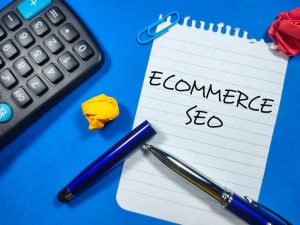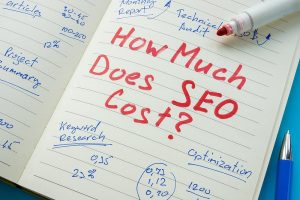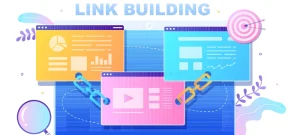Many business owners cringe at the idea of paying for clicks. Plus, many hold on to the misconception that Search Engine Optimization (SEO) is all the marketing they need and PPC advertising is a luxury for the rich.
Interestingly, Hubsport’s 2022 Annual State of Marketing report indicated that 63% of people click on Google Ads. More than half of internet users visit web pages by clicking on paid advertisement campaigns. And that’s what PPC is all about.
PPC primarily involves investing money to improve your chances of getting clicks and traffic on your web pages. But there’s also more to it.
Here, we’ll explore the fundamentals of PPC marketing and how to increase sales with it.
PPC Advertising 101
PPC means Pay-Per-Click. It’s a digital marketing model that boosts your visibility by exposing your campaign to your target audience and charges you money for every click your ad piece gets. Primarily, you pay every time someone clicks on one of your ads.
The commonest PPC use case is Google’s search engine marketing (SEM) or paid ads. That’s why most PPC advertising definitions refer to Google Ads to explain the concept.
While the fundamental idea for the PPC model is generally the same, the execution mode varies across different platforms. On most platforms, marketers will bid for specific keywords and whoever has the highest bid wins the ads slot for that keyword.
Below is a breakdown of the process.
- You identify your marketing objective (say — build brand awareness) and choose a campaign that matches it.
- You define your targets, i.e. audience, demography, location, devices, and schedule.
- Lastly, prepare your budget and submit a bid for the keyword.
If you have the winning bid, you get the ad slot for the keyword. Then the PPC platform will charge you the bid amount each time someone clicks your ads campaign.
Admittedly, the idea that you’ll pay for each click on your link can initially seem scary. Imagine you get a hundred thousand clicks, and the platform charges you $2 for each. You’ll incur a massive amount in cost-per-click charges.
But PPC advertising has several advantages for building brand awareness and can be the missing piece of your marketing mix.
Benefits of PPC Advertising
Understanding the advantages of PPC marketing will give you a bird’s eye view of how it can benefit your business and how to use it for your goals. Below are some of those perks.
Ppc Ads Put Your Pages at the Top Of SERPs
PPC advertising on major search engines such as Google and Bing will put your page among the top results of Search Engine Result Pages (SERPs). Your ads will show up first for all searches that have elements fitting the parameters you set in your ads campaign.
For example, say you set the following parameters on your Google Ads campaign.
- Keyword “PPC Marketing Firm”
- Location: Ontario
Then, your website will always show among the top results of all Google searches involving the keyphrase PPC Marketing Firms in Ontario. That way, potential customers are more likely to notice your Ad before scrolling down for alternatives.
PPC Advertising is Great for Liftoff Marketing Campaigns
PPC advertising is to marketing what nitro is to race cars. It provides a significant boost for businesses looking to increase their popularity rapidly.
This particular advantage distinguishes PPC from SEO. While SEO typically takes the slow and steady improvement route, PPC will launch your business right to the top of internet pages — putting it in the faces of the people you want to reach.
That’s why it’s excellent for liftoff marketing campaigns. It’ll give you a significant headstart with your marketing effort. By launching it first, you’ll create sufficient brand awareness quickly and then build your digital marketing mix around it.
PPC is Perfect For Targeting a Specific Audience
When creating your PPC ads, most platforms will require you to choose specific parameters that enable them to display the ads to the right audience. It’s important you clearly specify the group of people you’re targeting with your ads.
Mailchimp’s recent study showed that segmented email campaigns offer 100.95% higher click-through rates and 14.31% higher open rates than non-segmented email campaigns. That further illustrates the need to categorize your audience.
Primarily, you can segment the people you intend to reach by;
- Age
- Geographic Location
- Gender
- Specific Interests
- Marital Status
- The device they’re browsing from
This versatility makes PPC a more suitable option for targeting specific groups of people. This functionality is a plus if you’re seeking to raise brand awareness with a particular market segment, in a certain location or with people with unique interests.
PPC is a Budget Friendly Option For Bolstering Brand Awareness
Your initial skepticism about PPC most likely boils down to how you’ll afford it. But, PPC advertising is an affordable route to building brand awareness.
You typically get to decide how much you want to pay when you submit your bid. The PPC platforms won’t force any amount on you — you’ll only pay the amount you indicated in your bid. Essentially, it can be as cheap as you determine.
Understandably, you’ll have to bid high to win in some cases. But that will only happen if you bid on keywords with immense conversion rates.
Regardless of how much you spend on PPC, stay rest assured that you’ll get a profitable ROI if you offer good value to customers.
PPC Provides Fast, Measurable Results
PPC advertising is the way to go for quick, measurable results. SEO and email marketing strategies often take some time before their effects compound. In many cases, it can be challenging to quantify these results.
On the other hand, PPC advertising gives you instant, quantifiable results. The ads go to the top of the page, where people see and click them easily. Plus, you get to conveniently view the ads’ click-through rate, which is the number of people who visited your page via the ads.
In addition, you get to quickly check how much you’ve spent on the campaign and compare it with your earnings to determine your Return on Investment (ROI).
Most platforms provide these reports and Key Performance Indicators (KPIs) for you to measure the effectiveness of your PPC marketing campaigns.
Integrates Well With Other Marketing Channels
PPC advertising also provides a gateway to unlocking the rest of your marketing endeavours. For example, content marketing is an integral aspect of any digital marketing mix, and PPC advertising provides an excellent way to use it.
PPC allows you to quickly implement your content marketing strategy on your website and use ads to direct the target audience there.
In the same way, you can integrate PPC advertising with email marketing. Make the ads direct the audience to a webpage where they’ll sign up for your newsletters.
PPC advertising also works well with SEO. The results from PPC campaigns can provide insights into the correct SEO strategies for your business. For example, it can give you an idea of the right keywords and how best to use them.
How PPC Advertising Fits into Your Marketing Mix
PPC advertising is straightforward and fits well with conventional digital marketing strategies. Whether you’re a cosmetic dentist or run a plumbing business in Ontario, PPC advertising works across all niches.
Below are the primary elements of PPC, their importance, and how they apply to your overall brand awareness efforts.
Ads Campaign
PPC advertising mainly relies on search engine marketing. Since you’re paying, you get favourable treatment from the search engine. And Google has the most popular PPC platform for marketers.
Google reserves spaces at the top of all search results for ads on specific keywords. These spaces are where your ads go when you launch them.
With this advantage, Google Ads enables you to maximize opportunities and bolster all your other marketing efforts. You may then use it to promote your website, business, products or anything else you wish.
In that way, it’s effective for complementing your other marketing efforts. For example, you may use paid ads to increase traffic to a landing page where people get to sign up for your email newsletters.
Similarly, it’s applicable for directing the audience to your blogs to improve your content marketing results. But regardless of how you choose to employ it in your marketing mix, your ads campaign will feature these primary aspects.
Ads Copy
The ad copy entails the message of your PPC marketing campaign. It includes all the text, i.e. the header, the body, the call to action, and the link.
The copy is where you convince the audience to do whatever you hope to achieve with the campaign. If you want more visitors to your store, your ad copy must persuade them to visit your page. To achieve that –
- The header must be catchy
- The message must be convincing
- And the CTA must induce action
Keyword Strategy
PPC advertising relies heavily on keywords. You’re primarily paying so your ads will show and get clicks every time someone searches for some keyword. That’s why you must include the keywords in your ad copy.
The PPC platform will require you to assign a match type to your keywords when creating your ads campaign. These match types will define the queries for which your ads will show.
But first, you must bid on keywords that are relevant to your offering. Don’t just bid on any available keywords. Instead, ensure they’re terms people will type in the search box when they need what you’re promoting.
Ads Images
PPC platforms limit the volume of text you can put in an ad. Google has the following limits on Ads text and character volume.
- Headline 1: Maximum of 30 Characters (including spaces)
- Description Text: Maximum 80 characters (Including spaces)
- Paths: Maximum 30 characters combined.
You have only about 140 characters to make your point with Google Ads. But Google doesn’t limit what you can put in an image. Images speak a thousand words, so you must use them to your advantage.
Your ad images should give the audience a good idea of what you’re offering without reading the accompanying text.
Audience Targeting
Creating the ad is a part of the overall PPC marketing. The other part focuses on the people you’re directing the campaign towards.
The keyword you select gives some direction about who you’re targeting. But, the keyword alone isn’t enough to determine your specific intended audience.
Most platforms allow you to specify your target audience with two main factors.
Location Targeting
Location targeting allows you tailor your ads to audiences browsing the internet from a specific location. For example, you’re doing PPC marketing for a firm in Toronto. For that, you’ll target your ads to people searching your chosen keywords from Toronto.
Device Targeting
Alternatively, target specific device users with your ads. That’ll make the ads visible to people using the devices you determine in your parameters.
Essentially, you don’t need to create a one size fits all PPC ad for all visitors. Instead, create multiple ads and tailor them to specific devices based on your needs or designs.
Best Strategies For PPC Advertising
- Always bid on relevant Keywords. It’s not smart to pay for clicks you know won’t convert. That happens when you bid on keywords with little or nothing to do with your offerings. The result is people will click the ad and go to your page but will move on quickly when they find it irrelevant to their needs. You’ll get high clicks and fees but won’t get much in return.
- Prioritize landing page quality. To boost awareness, you shouldn’t only aim to use PPC marketing to get clicks. You must put systems in place to ensure the clicks convert. Essentially, your landing page content must engage your audience and persuade them to do business with you.
- Use Captivating Ad copies. Your ad copy must be enticing to get people to click through to wherever you want them to go. You must make it eye-catching, interesting and action-inducing. The end goal is to get your target customer to answer your call-to-action.
PPC Provides the Boost Your Marketing Campaigns Need
Many business owners underestimate how much PPC advertising can contribute to their marketing mix. You’re probably skeptical and unsure if investing in PPC marketing is worth it. Or you may have a personal bias against “buying clicks.”
But you should consider that PPC advertising’s benefits far outweigh the perceived disadvantages to your marketing endeavours. Plus, it’s easy to integrate with other digital marketing channels.
But we understand all these can be a lot to handle alone, so 2Marketing is here to help. If you need assistance, feel free to book a consultation session to discuss personalized strategies for growing your business and increasing awareness through PPC.
Call 647-424-4424 to get started.






